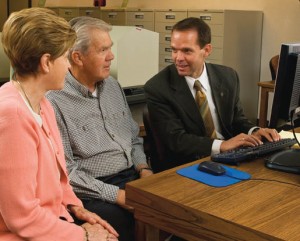In a news release dated October 11, FamilySearch, the online family history resource of The Church of Jesus Christ of Latter-day Saints, issued a call for volunteer indexers for a variety of projects.
 The specific projects mentioned are Mexican and other Latin American records. These particular volunteers should be able to read both Spanish and English. However, FamilySearch also needs indexers for many other current and upcoming projects. Those who are interested in helping in these efforts should visit www.familysearchindexing.org. Clicking on the “Projects” tab will bring up links to lists of current, upcoming, and completed projects.
The specific projects mentioned are Mexican and other Latin American records. These particular volunteers should be able to read both Spanish and English. However, FamilySearch also needs indexers for many other current and upcoming projects. Those who are interested in helping in these efforts should visit www.familysearchindexing.org. Clicking on the “Projects” tab will bring up links to lists of current, upcoming, and completed projects.
The most immediate goal in the Archives of Mexico. At the present time, the only real way for genealogical researchers to access the data in this census is to sift through 506 rolls of microfilm — and these are only available in select locations.
Once the information has been digitized and indexed, anyone who wishes to search for information on these records will be able to bring up the information for free on any computer with an Internet connection.
Indexing is a vital part of the process of making the records accessible online. Searching records without an index can be like trying to find the proverbial needle in a haystack. Census records and other records of interest to family history researchers were not necessarily put into any searchable order when they were first recorded. For example, if a census taker originally recorded all of the people in a given neighborhood at one time, the actual names would not be in recorded in alphabetical order. Exactly where they could found today on a set of microfilm rolls or even digitized online would be difficult to pinpoint, unless these names were collected and indexed. That’s where the importance of these volunteers comes in.
Without an index, researchers must spend many long painstaking hours sifting through the records page by page until they find the information they need. But with indexes for the records in place, “the records are searchable in seconds, just like looking up a name in a phone book — except quicker, easier and online,” Paul Nauta, manager of public affairs for FamilySearch, said.
Volunteers can make a difference in as little as 30 minutes a week. For more information on this and other indexing projects, visit www.familysearchindexing.org. If you’d like to know more about why Latter-day Saints put so much effort into making genealogical records accessible to everyone, one good explanation can be found right here at LDSBlogs.com, at “The Importance of Family History to Latter-Day Saints.”

